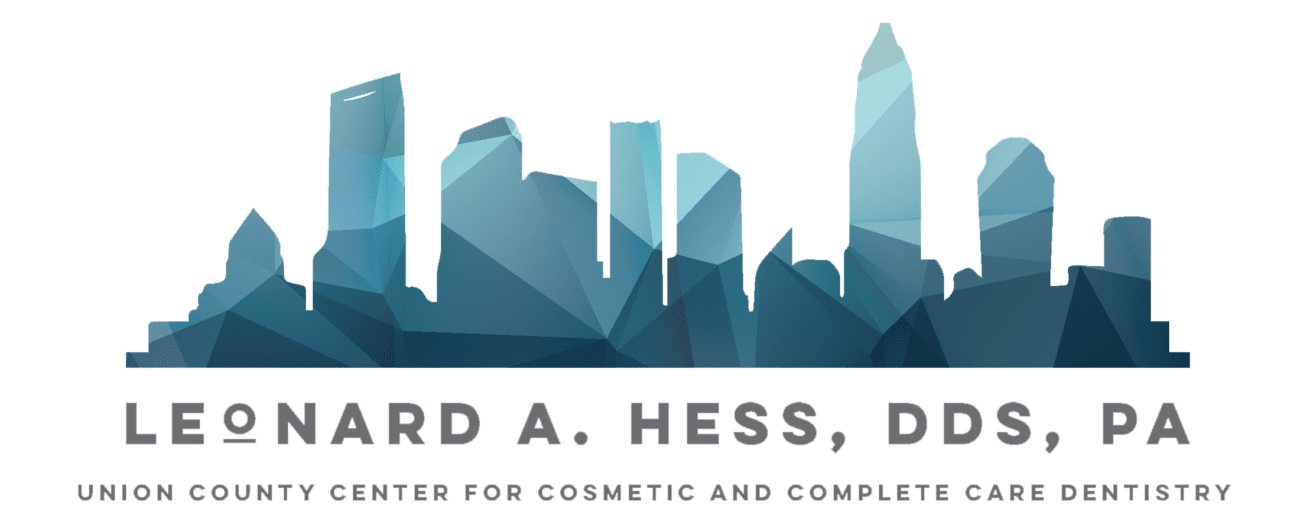Do you or your partner have issues staying asleep because of snoring? Do you wake up still feeling groggy and tired?
Millions of Americans snore, and while many people don’t realize they snore, their partners certainly do. Snoring in and of itself is not a dire medical condition, but coupled with other symptoms, it may indicate Obstructive Sleep Apnea (OSA). Snoring and sleep apnea can cause a person to stop breathing repeatedly during sleep. In addition to providing general dentistry options, Dr. Leonard Hess offers snoring and sleep apnea treatment.
Dr. Leonard Hess provides snoring and sleep apnea treatments in Monroe, NC. He uses a snore guard to help patients stop snoring and get a better night’s sleep. Some people can stop snoring by losing weight, avoiding tobacco, and limiting alcohol before bed. Others, however, have a problem that needs to be addressed by a medical professional. Your dentist in Monroe, NC offers treatment for snoring patients, bringing relief from symptoms and a good night’s sleep for all!
Snoring, although common, can be a sign of a serious health concern known as Obstructive Sleep Apnea (OSA). There are a variety of risk factors for OSA. This issue is more common in men and patients who are overweight.
OSA symptoms can affect daily life!
- Feeling tired during the day, even after “sleeping” for 6-8 hours
- Headaches upon waking
- Suddenly waking during the night
- Feeling restless at night
- Feeling “foggy” or unable to concentrate during the day
- Dry mouth upon waking up
Snoring & Sleep Apnea Treatment
If lifestyle changes are not possible or make no impact on your snoring or sleep apnea, you may need to seek professional treatment. Dr. Hess offers oral appliance therapy, which involves using a snore guard to keep the airways open during sleep, preventing you from snoring.
How Does a Snore Guard Work?
- Repositions the lower jaw, tongue, soft palate, or uvula
- Stabilizes the lower jaw and tongue
- Increases the muscle tone of the tongue
Wake Up Feeling Refreshed
Snoring affects not just the snorer but their sleep partner as well. Contact the Union County Center for Comprehensive Dentistry for a consultation with Dr. Leonard Hess to determine if a snore guard is right for you.
These and other symptoms may indicate the need for medical evaluation to determine if the patient suffers from OSA and would benefit from treatment.
Snoring and Sleep Apnea FAQs
Snoring and sleep apnea can have detrimental effects on your overall health. Learn more about these conditions by reading the answers to these frequently asked questions.
What causes snoring?
Snoring is a noise caused by vibrations in your airway. During sleep, the muscles in the back of the mouth become relaxed. They can vibrate as air passes over them and, in some cases, partially obstruct your airway. As airflow becomes more difficult, the snoring becomes louder.
Who is most susceptible to sleep apnea issues?
Anyone can snore, but studies indicate that men, older adults, and people who are overweight are more likely to snore. Other factors that contribute to snoring are habits such as alcohol use, smoking, and the use of sedatives.
What is Obstructive Sleep Apnea?
Obstructive Sleep Apnea (OSA) is the most common sleep-breathing disorder. The most noticeable sign of OSA is snoring. Obstructive sleep apnea is considered a serious medical condition and can lead to complications, including cardiovascular problems, fatigue, and complications with medications and surgery.
Does sleep apnea go away on its own?
it is very uncommon for sleep apnea to go away on its own. There are things you can do to alleviate it without medical intervention. You can exercise more often, alter your sleep position, use a humidifier, and avoid drinking alcohol and smoking.
Can people with sleep apnea get disability?
No, the Social Security Administration doesn’t consider sleep apnea a condition that qualifies for disability status. You have to meet the definition they have of being disabled. Some of the side effects and other problems resulting from having sleep apnea may qualify you for disability.
When should I be concerned about my snoring?
Not all people that snore have sleep apnea. But sleep apnea sufferers are almost always people that snore. It can be hard to determine when your snoring is something more serious. You need to see a healthcare provider if your snoring disrupts your daily life. When snoring disrupts your sleep, you can have fatigue throughout the day and be prone to falling asleep when you’re doing things like driving your car. Waking up gasping for air is another indication that there’s a more serious problem at hand.
OSA can be a serious condition and lead to overall health problems, including an increased risk of stroke and heart disease. Call us for treatment options at 704–240–5045, or schedule a consultation online today.
